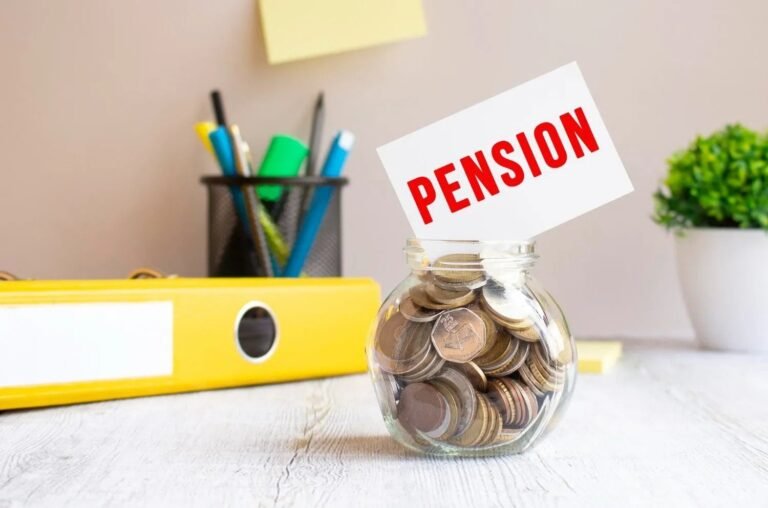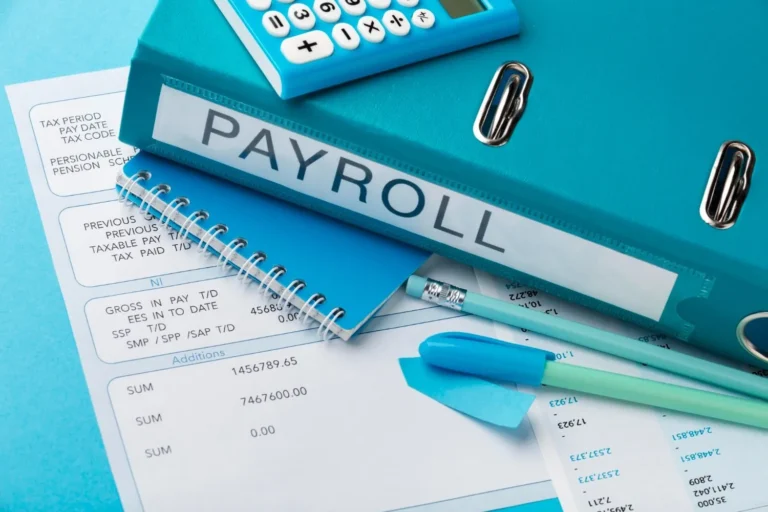Picture this: You have just received your paycheck, and you are excited about your hard-earned money. But then, your heart sinks as you notice deductions for Income Tax, Pension, and National Insurance (NI) contributions. It is a tough moment for any employee, as we all wish to maximise our take-home salary.
Fortunately, there are a few clever tricks to keep more of your earnings in your pocket. What if we told you there is a way to defer your NI contributions and pay at a reduced rate of just 2%? It might sound mind-boggling, but it is true! In this article, we will guide you through everything you need to know about NI contribution deferment and how you can pay at this reduced rate.
What is deferment of National Insurance (NI) contributions?
When it comes to your earnings, National Insurance has its own set of rules. Unlike income tax, which gives you a single tax-free allowance for the entire tax year, National Insurance sets a separate limit for each job when it is with a different employer.
In the 2023/24 fiscal year, that limit is £242 per week, £1,048 per month, or £12,570 per year. Here is where it gets interesting: National Insurance contributions kick in at a rate of 12% on your earnings above £12,570 up to a maximum of £50,270, depending on how much you make with each company.

But here is a nifty financial hack for those of you juggling multiple jobs: You can defer (read: delay) the payment of Class 1 National Insurance contributions. It is like getting a little extra wiggle room in your budget.
How does it work, you ask? Well, you get to pay a reduced rate of just 2% and put the remaining 10% of your Class 1 NICs on hold for those additional jobs you are managing. This deferral party keeps going until HMRC does their math and calculates the exact NICs you owe at the end of the upcoming tax year.
HMRC conducts a thorough review of your National Insurance account to ensure that you have met the Class 1 NICs requirements in your primary employment. If there is a shortfall in your contributions and a balance is outstanding, HMRC will contact you to arrange for payment.
So, in a nutshell, deferring your NICs is a pretty smart move, especially if you are rocking more than one job. It is a savvy way to make your money work for you.
Who can defer National Insurance (NI) Contributions?
Well, if you are someone with multiple jobs and pay Class 1 National insurance, this could be your golden ticket to keep more of your hard-earned money.
So, what are the conditions to be met for this magic to work? Here is the lowdown:
Multiple Employers
If you are rocking more than one job and paying Class 1 National Insurance for each, you are in the game.
Earnings Thresholds
If you earn £967 or more per week from a single job during the tax year or a hefty £1,209 or more per week from two jobs over the same period, you are eligible to join the club.
The good news is that when you defer your NI contributions, you get to pay a reduced rate of just 2% on your weekly earnings between £242 and £967 in one of your jobs instead of the standard 12%. That’s extra cash in your pocket, and who does not want that?
So, if you meet these conditions, it is time to consider this savvy move to boost your take-home pay.
Can a self-employed defer NI contributions?
Okay, let’s take a step back in time to the year ending on April 5, 2015. Back then, if you were both employed and self-employed, there was a cool option on the table – you could request to defer your Class 4 National Insurance contributions.
While HMRC did their number-crunching to figure out if you owed anything, you had the flexibility to pay over contributions at a reduced rate of 2% instead of the standard 9% on those profits subject to Class 4 National Insurance.
Starting from the 2015/16 tax year, the option to defer Class 4 National Insurance Contributions (NICs) is no longer available. HMRC has made significant changes to the rules, and this option is no longer in play.
However, you may be able to claim a refund for previous tax years. If you wish to do this, you can do so through the HMRC website: Claim a National Insurance Refund.
After the deferment, which category of National Insurance (NI) contributions will I fall into?
Understanding your National Insurance (NI) category is essential, as it affects how employers calculate your NI contributions. While many fall into the category letter A, things change when you are eligible for a reduced rate.

When you are eligible to contribute at the reduced rate, you will be placed into one of the below NI categories:
|
Category Letter |
Employee Group |
|---|---|
|
J |
Employees who can defer NI because they are already paying it in another job. |
|
Z |
Employees under 21 who can defer National Insurance because they are already paying it in another job. |
|
L |
Employees who work in freeports and can defer NI because they are already paying it in another job. |
To find your category letter, just check your payslip. It is the code that helps you to navigate the National Insurance contributions.
Can I Defer National Insurance Contributions When Approaching State Pension Age?
Here is the scoop: Usually, HMRC does not let you delay your Class 1 National Insurance Contributions (NICs) when you are in the tax year where you hit State Pension age.
However, if you can prove that you’ll be contributing the maximum Class 1 NICs by the time you reach State Pension age through your main job, HMRC might just give you the green light for deferment.
For instance, if you are a company director with an annual earnings period, you could end up paying enough Class 1 NICs even before you hit the State Pension age. So, it is worth exploring your options to keep more money in your pocket.
How to defer NI contributions and pay at a reduced rate?
For the tax year 2023/24, if you meet the criteria for deferring your Class 1 National Insurance contributions (NICs), It is a breeze to get started. Here is how:
You have two options:
- Apply Online: The online route is quick and straightforward. Just head over to the “apply online” website, fill in your details, and apply for deferment. It is as simple as that.
- Apply by Post: No worries if you prefer the old-school way. But remember these two essential points when submitting your application by post:
- You must apply for deferment for each tax year using a new application form.
- Write in clear capital letters using black ink.
On page 1 of the form, provide all the details about your main employment. For instance, if you expect to pay NICs regularly throughout the year on earnings at or above the Upper Earnings Limit (that’s £967 per week or £4,189 per month).
Or, if you are juggling three jobs and anticipate that the combined weekly or monthly earnings from two of them will be at or above £1,209 per week or £5,237 per month.
For any additional jobs or offices for which you need a deferment certificate, head over to the “Additional employments” section on page 2.
Last but not least, don’t forget to sign and date the Declaration above the form. Once everything is in order, send your completed application to:
Personal Tax Operations
Northeast England
HM Revenue and Customs
BX9 1AN
United Kingdom
Get your deferment form for the tax year 6 April 2023 to 5 April 2024 on HMRC website.
When to apply for deferment of NI contributions for 2023/2024?
If you are reading this article, you are already late, as the deadline is the 6th of April 2023.
However, there is good news: HMRC is ready to accept applications right up to the 14th of February 2024.

But, if your application happens to reach HMRC between the 14th of February 2024 and the 5th of April 2024, there is a small catch. HMRC will need the thumbs-up from your deferred employers to give it the green light.
You see, during this period, HMRC might be racing against the clock to process your application, and your employer might not have the time to issue a refund before they wrap up their end-of-year returns.
So, act and fast-track your deferment application; It is a win-win for your finances!
Am I too Late to Apply for The Deferment?
You are too late to apply for deferment of NI contributions in a previous tax year only if you:
- Worked at two or more jobs.
- Didn’t apply to delay your Class 1 National Insurance Contributions (NICs) and
- Believe you paid more Class 1 NICs than necessary in that tax year.
However, there is a chance that you could get a refund of the excess contributions
How Does HMRC Enable Reduced Rate of National Insurance Contributions?
If you are wondering how HMRC makes it possible for you to pay your National Insurance (NI) contributions at a reduced rate. Let’s break it down for you:
- Your Main Employers: HMRC plays matchmaker, deciding which employers you’ll need to pay your Class 1 NICs with. They call these your “main employers.”
- Deferment Decision: HMRC also determines which employers you can defer payments with, lightening the load on your pocket.
Once the decisions are made, HMRC sends your deferment employers a deferment certificate. This certificate instructs them to deduct a reduced rate of 2% on all earnings above the Primary Threshold during the 2023/24 tax year. Plus, they will need to make a few key moves:
- Adjust their records accordingly.
- Make sure you get a refund for any over-deductions.
It is important to note HMRC does not spill the beans about your other jobs to your employers. Your financial information remains private.
Also, HMRC will write to you about why they cannot allow you to defer your NI contributions.
So, with HMRC’s help, you can enjoy the benefits of reduced NI contributions.
How Earning from Multiple Employment Can Impact NICs?
When it comes to paying National Insurance Contributions (NICs), there is a maximum limit on the Class 1 primary NICs by any one individual in one tax year. If your earnings exceed the upper earnings limit, you may end up paying more NICs than if you earned the same amount from just one source.
For example,
James earns £45,000 from Employment A and £45,000 from Employment B. Using an annual earnings period and a primary threshold of £12,570 for the purpose of illustration, his primary NICs are:
|
Employment A |
Total |
Employment B |
Total |
|---|---|---|---|
|
£0 – £12,570 @ 0% |
– |
£0 – £12,570 |
– |
|
£12,570 – £45000 @12% |
£3,891.6 |
£12,570 – £45000 |
£3891.6 |
The total primary contributions of James for Employment A and Employment B is £7,783.2.
Now, let us look at John. He is earning a total of £90,000 from just employment A. Using an annual earnings period and a primary threshold of £12,570, his Class 1 primary NICs are:
|
Employment A |
Total |
|---|---|
|
£0 – £ 12,570 @0% |
£0 |
|
£12,570 – £50,270 @12% |
£4,524 |
|
More than £50,270 @2% |
£794.6 |
Total Class 1 primary NICs for employment A of John is £5,318.6.
Now, here is where it gets interesting. Without the annual limit on NICs, James ends up paying more, even though he earned the same amount as John. He is overpaying by £2,464.6 (7,783.2-£5,318.6) just because he has two jobs.

So, it is essential to understand how NICs work, especially when you have multiple income sources, to make sure you are not overpaying. Your hard-earned money should stay in your pocket!
What Happens If I Underpay National Insurance Contributions?
After the tax year wraps up, HMRC will give your National Insurance account a thorough check to ensure you have met the Class 1 NICs requirements in your primary employment.
If it turns out you have not paid the required Class 1 NICs and there is a balance to settle, they will send you a letter to request payment.
Do I need to renew my deferment certificate every year?
Well, if it is necessary, HMRC will send you an invitation to renew your deferment certificate before the new tax year kicks in.
Points to note if you have obtained a deferment certificate from HMRC
Here are some tips that you can adhere to ensure Payroll Compliance in the UK:
So, you have your deferment certificate from HMRC and are all set to enjoy the benefits of reduced National Insurance Contributions (NICs). But there are a couple of important things to remember, especially when it comes to keeping HMRC in the loop:
- Job Changes: It is essential to let HMRC know right away if any of your jobs come to an end or if you start a new one. This ensures that your contributions align with your current work situation.
- Change of Address: If you happen to move to a new home, HMRC should be informed promptly.
This way, they can stay in touch and ensure that all communication reaches you without any hiccups.
By staying on top of these updates, you can ensure that your deferment process runs smoothly and without any surprises.
Final Thoughts
In a world filled with financial complexities, it is always a breath of fresh air to discover a simple yet powerful way to make your money work harder for you. Deferment of National Insurance contributions is a smart financial move that can put more money in your pocket.
We’ve delved into the ins and outs of this financial hack, and it’s clear that if you’re managing more than one job, you’re holding a golden ticket to savings. By meeting the eligibility criteria, you can reduce your National Insurance contributions to a mere 2%, leaving more of your hard-earned cash right where it belongs—with you.
The process is straightforward, whether you choose to apply online or by post, and while the deadline may have passed for the previous tax year, there’s still ample time to prepare for the next one.
So, don’t let the opportunity slip away. Take control of your financial well-being, explore your eligibility, and embrace this powerful tool to keep more money in your pocket. With National Insurance contribution deferment, you’re not just unlocking savings; you’re unlocking the potential for better financial management.









